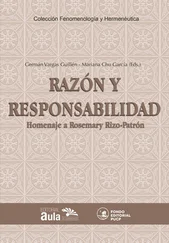“What was the annual per capita gross national income of China at the time of ejaculation?”
“Four thousand nine hundred and forty U.S. dollars, but I think that’s an unreliable measure of quality of life and I’d dispute the relevance of the fact, Camila.” I had always liked the name Camila.
“What if you have to do IVF to make me?”
“That’s more like ten thousand.”
“Average annual cost of a baby in New York?”
“Between twenty and thirty thousand a year for the first two years, but we’re going to live lightly.”
“After that?”
“I don’t know. Ask your phone.” A teenager had sat down on the bench beside me and was texting; I absorbed her into the hypothetical interrogation.
“How are you going to pay for all of this?” she asked me.
“On the strength of my New Yorker story. You’re overfocused on the money, Rose.” It was my maternal grandmother’s name.
“Is that why you’ve exchanged a modernist valorization of difficulty as a mode of resistance to the market for the fantasy of coeval readership?”
“Art has to offer something other than stylized despair.”
“Are you projecting your artistic ambition onto me?”
“So what if I am?”
“Why didn’t Mom just adopt?”
“Ask your mother. I guess because that’s equally or more ethically complicated most of the time and because, independent of culturally specific pressures, some women experience a biological demand.”
“Why reproduce if you believe the world is ending?”
“Because the world is always ending for each of us and if one begins to withdraw from the possibilities of experience, then no one would take any of the risks involved with love. And love has to be harnessed by the political. Ultimately what’s ending is a mode.”
“Can you imagine the world if and when I’m twenty? Thirty? Forty?”
I could not. I hoped my sperm was useless.
“Cutting and other forms of self-harm and parasuicidal behavior are endemic in my age group.” I pictured the teenager pulling up her sleeve, showing me the red crosshatching.
“You’re misusing endemic .”
“The average cost for a month of inpatient treatment is thirty thousand.” This observation was in Dr. Andrews’s voice.
“She will be surrounded by love and support.”
“How will you work out your level of involvement so that neither I nor Mom resents you for it?” The teen.
“As we go along.”
The conversation didn’t stop so much as recede beneath the threshold of perceptibility. Maybe to distance myself from the morning’s anxiety, I removed the blue pill from the inside pocket of my coat and tried to crush it, which I couldn’t do, but with two hands I succeeded in breaking it in half. I absentmindedly tossed the halves onto the sidewalk in front of me, at which point a nearby pigeon approached it, no doubt accustomed to being fed by tourists from this bench. What is the effect of sildenafil citrate on stout-bodied passerines? I stood and tried to shoo the bird away; it startled, but then turned back and quickly ate a half before I managed to intervene.
* * *
Two days after providing a sample of my reproductive cells for analysis, I was in the basement of the Park Slope Food Coop bagging the dried flesh of a tropical stone fruit, trying not to listen to one of my louder coworkers as she explained her decision to pull her first-grader out of a local public school and, despite the cost and the elaborate application process, place him in a well-known private one.
The Park Slope Food Coop is the oldest and largest active food cooperative in the country, as they tell you at orientation. Every able-bodied adult member works at the co-op for two hours and forty-five minutes every four weeks. In exchange you get to shop at a store with less of a markup than a normal supermarket’s; prices are kept down because labor is contributed by members; nobody is extracting profit. Most of the goods are environmentally friendly, at least comparatively, and, whenever possible, locally sourced. Alex had been a member when I moved to Brooklyn and it wasn’t too far from my apartment so I’d joined. Despite being frequently suspended for missing shifts while traveling, and despite complaining all the while about the self-righteousness of its members, its organizational idiocy, and the length of its checkout lines, I’d remained a member. Indeed, for most of the members I knew except Alex, who rarely complained about anything (“You do my complaining for me”), insulting the co-op was a mode of participation in its culture. Complaining indicated you weren’t foolish enough to believe that belonging to the co-op made you meaningfully less of a node in a capitalist network, that you understood the co-op’s population was largely made up of gentrifiers of one sort or another, and so on. If you acknowledged to a nonmember that you were part of the co-op, you then hurried to distinguish yourself from the zealots who, while probably holding investments in Monsanto or Archer Daniels Midland in their 401(k)’s, looked down with a mixture of pity and rage at those who’d shop at Union Market or Key Food. Worse: The New York Times had run an exposé about certain members sending their nannies to do their shifts, although the accuracy of the reporting was disputed. The woman now holding forth about her child’s schooling was almost certainly a zealot.
And yet, although I insulted it constantly, and although my cooking was at best inept, I didn’t think the co-op was morally trivial. I liked having the money I spent on food and household goods go to an institution that made labor shared and visible and that you could usually trust to carry products that weren’t the issue of openly evil conglomerates. The produce was largely free of poison. The co-op helped run a soup kitchen. When a homeless shelter in the neighborhood burned down, “we”—at orientation they taught you to utilize the first-person plural while talking about the co-op — donated the money to rebuild it.
I worked in what was known as “food processing” on every fourth Thursday night: in the basement of the co-op, I, along with the other members of my “squad,” bagged and weighed and priced dry goods and olives; we cut and wrapped and priced a variety of cheeses, although I tended to avoid the cheese, as it required some minimum of skill. In general the work was simple: the boxes of bulk food were organized on shelves in the basement. If dried mangoes were needed upstairs, you found the ten-pound box, opened it with a box cutter, and portioned the fruit into small plastic bags you then tied and weighed on a scale that printed the individual labels. Then you took the food upstairs and restocked the shelves on the shopping floor. You were required to wear an apron and a bandanna in addition to your plastic gloves. Open-toed shoes were prohibited, but I’d never owned a pair of open-toed shoes. For better or for worse, most people were sociable and voluble, like the woman talking now — this seemed to make the shift go faster for my comrades; for me, the talk often slowed time down.
“It just wasn’t the right learning environment for Lucas. The teachers really tried and we believe in public education, but a lot of the other kids were just out of control.”
The man working on bagging chamomile tea immediately beside her felt obliged to say, “Right.”
“Obviously it’s not the kids’ fault. A lot of them are coming from homes—” The woman who was helping me bag mangoes, Noor, with whom I was friendly, tensed up a little in expectation of an offensive predicate.
“—well, they’re drinking soda and eating junk food all the time. Of course they can’t concentrate.”
“Right,” the man said, maybe relieved her sentence hadn’t taken a turn for the worse.
Читать дальше










